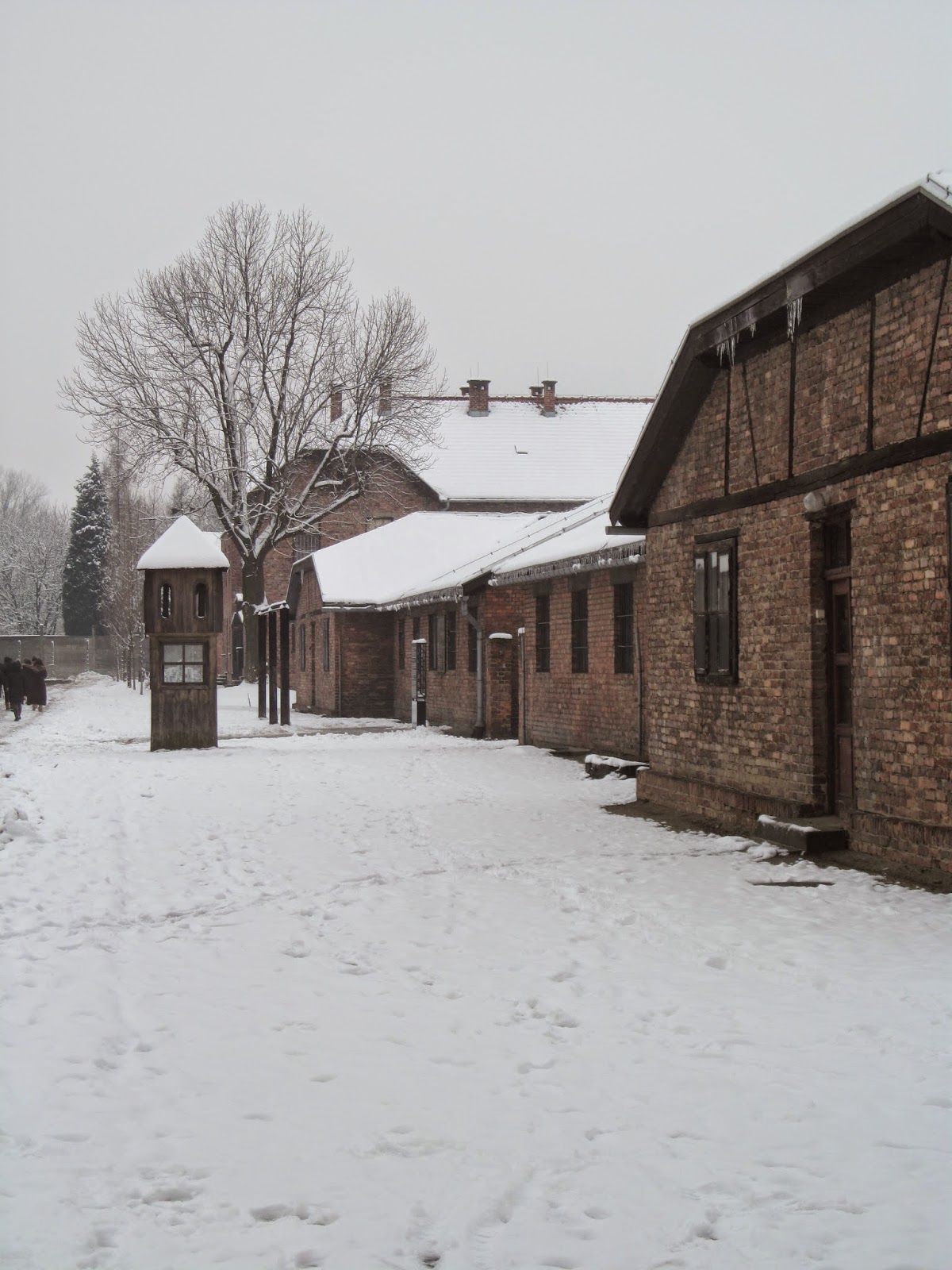“We survivors do not want our past to be our children’s future.”
~ Roman Kent, Holocaust Survivor
On our last day in Poland, we had the opportunity two places. The first place we traveled to was the town of Oświęcim. You might know the town by the German name, Auschwitz. We discussed the vibrant life that was there before the occupation of the Germans. The population at the time was over 50% Jewish- it's hard to believe that there are currently no Jewish people living in the town today. Unfortunately, the town is now always associated with the concentration camp that was built there. It's important to note that the Polish citizens of the town never asked for the camp nor did they want it there. The people who live there now do not like to talk about the past and they do not like to tell other people where they live.
1. If you were a Jewish survivor of Auschwitz, would you return to your hometown of Oświęcim after the liberation ? Why or why not?
The second part of our day was the culminating event of our trip- the commemoration ceremony of the 70th anniversary of Auschwitz. It was a surreal feeling seeing the notorious gate and watch tower that are often associated with the camp. Over 300 survivors attended the ceremony and it was emotional listening to their stories.
2. Roman Kent, a survivor of Auschwitz, made the statement,“We survivors do not want our past to be our children’s future.” In what ways can your generation take steps to make sure that tragedies in the Holocaust never happen again. List at least 3 ways.
3. The theme of our trip was "The Past is Present." In terms of the Holocaust, what do you think this means? (Min. 3 sentences)
I'm not sitting at the airport in Frankfurt. I'll be home soon!














